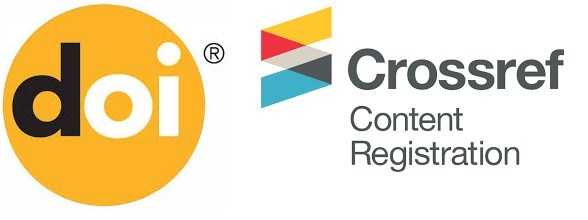DETERMINASI FAKTOR-FAKTOR ARROGANCE SEBAGAI PERSPEKTIF FRAUD PENTAGON TERHADAP KECURANGAN LAPORAN KEUANGAN
DOI:
https://doi.org/10.34128/jra.v7i1.265Kata Kunci:
CEO Compensation, CEO Exposure, and CEO Power, Financial Statement FraudAbstrak
Financial statement fraud is the misstatement or omission of amounts or deliberate disclosure with the intent of deceiving users of financial statements. Pentagon fraud is the factors that cause fraud through five elements: pressure, opportunity, rationalization, competence and arrogance. Arrogance is an attitude of arrogance that exists in a human being so that he considers that he is capable of cheating. This study was conducted to identify whether arrogance factors namely CEO Compensation, CEO Exposure and CEO Power have an effect on financial statement fraud. This research uses secondary data on the annual financial statements of manufacturing sector companies listed on the Indonesia Stock Exchange for 2017-2021. This research is quantitative with data collection techniques using purposive sampling with a total sample of 77 companies. The logistic regression research method is processed with Eviews 12 software. The results of this study show that CEO Power proxied with duality and CEO Exposure proxied with Photograph in Annual Report negatively affect financial statement fraud in manufacturing sector companies listed on the Indonesia Stock Exchange in 2017-2021.
Referensi
ACFE. (2022). Occupational Fraud 2022: A Report to the nations. Association of Certified Fraud Examiners, 1–96.
Beneish, M. D., Lee, C. M. C., & Nichols, D. C. (2012). Fraud Detection and Expected Returns. SSRN Electronic Journal. https://doi.org/10.2139/ssrn.1998387
Campbell, W. K., Hoffman, B. J., Campbell, S. M., & Marchisio, G. (2011). Narcissism In Organizational Contexts. Human Resource Management Review, 21(4), 268–284. Https://Doi.Org/10.1016/J.Hrmr.2010.10.007
Cragun, O. R., Olsen, K. J., & Wright, P. M. (2020). Making Ceo Narcissism Research Great: A Review And Meta-Analysis Of Ceo Narcissism. Journal Of Management, 46(6), 908–936. Https://Doi.Org/10.1177/0149206319892678
Dechow, P., Ge, W., & Schrand, C. (2010). Understanding earnings quality: A review of the proxies, their determinants and their consequences. Journal of Accounting and Economics, 50(2–3), 344–401. https://doi.org/10.1016/j.jacceco.2010.09.001
Ernawan dan Ratna. (2020). Pengukuran Narsisme CEO dalam Penelitian Di Bidang Bisnis, Manajemen dan Akuntansi: Sebuah Studi Literatur. Jurnal Akuntansi Dan Bisnis, 6. https://doi.org/10.31289/jab.v6i1.2861
Ham, C., Seybert, N., & Wang, S. (2018). Narcissism Is A Bad Sign: Ceo Signature Size, Investment, And Performance. Review Of Accounting Studies, 23(1), 234–264. Https://Doi.Org/10.1007/S11142-017-9427-X
Hambrick, D. C., & D’Aveni, R. A. (1992). Top team deterioration as part of the downward spiral of large corporate bankruptcies. Management Science, 38(10), 1445–1466.
Horwarth, C. (2012). The Mind Behind The Fraudsters Crime: Key Behavioral and Environmental Elements.
Horwath, C. (2012). The Mind Behind the Fraudsters Crime: Key Behavioral and Environmental Elements. United States of America: Crowe Horwath LLP, 1–62. https://www.crowe.com/
Icih, Kurniawan , A., & Andini, A. (2021). ANALYSIS THE EFFECT OF PENTAGON FRAUD THEORY IN DETECTING FINANCIAL STATEMENT FRAUD. Accounting Research Journal of Sutaatmadja (ACCRUALS).
Iqbal, M., & Murtanto. (2016). Analisa pengaruh faktor-faktor fraud triangle terhadap kecurangan laporan keuangan pada perusahaan property dan real estate yang terdaftar di Bursa Efek Indonesia. Seminar Nasional Cendekiawan 2016, ISSN: 2540-7589, 2002, 1–20.
Jensen, C., & Meckling, H. (1976). Theory of the Firm: Managerial Behavior, Agency Costs and Ownership Structure. Journal of Financial Economics, 3, 305–360.
Kusumosari, Larassanti. 2020. Analisis Kecurangan Laporan Keuangan melalui Fraud Hexagon pada Perusahaan Manufaktur yang Terdaftar di BEI Tahun 2014-2018. Skripsi. Semarang: Program Sarjana Fakultas Ekonomi Universitas Negeri Semarang.
Lubis, A. . (2011). Akuntansi Keperilakuan. In Akuntansi keperluan: akuntansi multiparadigma. Salemba Empat.
Marks, Jonathan. 2012. The Mind Behind the Fraudsters Crime: Key Behavioral and Environmental Elements. Crowe Horwarth LLP.
Nurchoirunanisa, N., Nuraina, E., & Styaningrum, F. (2020). Deteksi Financial Statement Fraud Menggunakan Fraud Pentagon Theory pada Perusahaan BUMN Yang Terdaftar di BEI. Review of Accounting & Business, 1(1), 1–17.
Pratiwi, N. R., & Nurbaiti, A. (2018). ANALISIS FRAUD PENTAGON DALAM MENDETEKSI KECURANGAN LAPORAN KEUANGAN. e-Proceeding of Management : Vol.5, No.3 Dsember 2018 | Page 3299.
Rijsenbilt, A., & Commandeur, H. (2013). Narcissus Enters the Courtroom: CEO Narcissism and Fraud. Journal of Business Ethics, 117(2), 413–429. https://doi.org/10.1007/s10551-012-1528-7
Rudiyanto, E. A., Marita, & Yulita, L. (2022). Analisis Pentagon Fraud dalam mendeteksi Fraudulent Financial Statement : Studi empiris pada Perusahaan Badan Usaha Milik Negara . Proceeding of National Conference on Accounting & Finance, Volume 4, 2022 Hal. 331-336.
Sanjaya, I., Suyanto, S., & Sari, G. P. 2021. Pengaruh Kepemilikan Saham Eksekutif, CEO Education dan Pergantian Auditor terhadap Kecurangan Laporan Keuangan pada Perusahaan BUMN (Studi Empiris pada Perusahaan BUMN yang Terdaftar di BEI). Jurnal Akuntansi AKTIVA, 2(1): 87-94.
Siregar, M. (2019). Pengaruh Crowe’s Fraud Pentagon Model terhadap Kecurangan Pelaporan Keuangan dengan Auditor Switching sebagai Variabel Moderasi. Prosiding Seminar Nasional Pakar, 53(9), 1689–1699. http://www.trijurnal.lemlit.trisakti.ac.id/pakar/article/view/6915
Situngkir , N. C., & Triyanto, D. N. (2020). Detecting Fraudulent Financial Reporting Using Fraud Score Model and Fraud Pentagon Theory: Empirical Study of Companies Listed in the L.Q. 45 Index. THE INDONESIAN JOURNAL OF ACCOUNTING RESEARCH.
Snyder, C. R., & Fromkin, H. L. (1977). Abnormality As A Positive Characteristic: The Development And Validation Of A Scale Measuring Need For Uniqueness. Journal Of Abnormal Psychology, 86(5), 518–527. Https://Doi.Org/10.1037/0021-843x.86.5.518
Suryani, E., & Fajri, R. R. (2022). Fraud Triangle Perspective: Artificial Neural Network Used in Fraud Analysis. General Management.
Xiang, R., & Song, C. (2021). Cfo Narcissism And Audit Fees: Evidence From Listed Companies In China. China Journal Of Accounting Research, 14(3), 257–274. Https://Doi.Org/10.1016/J.Cjar.2021.05.002.
Unduhan
Diterbitkan
Cara Mengutip
Terbitan
Bagian
Lisensi
Hak Cipta (c) 2024 Monika Yovita, Elly Suryani

Artikel ini berlisensiCreative Commons Attribution-NonCommercial-ShareAlike 4.0 International License.











